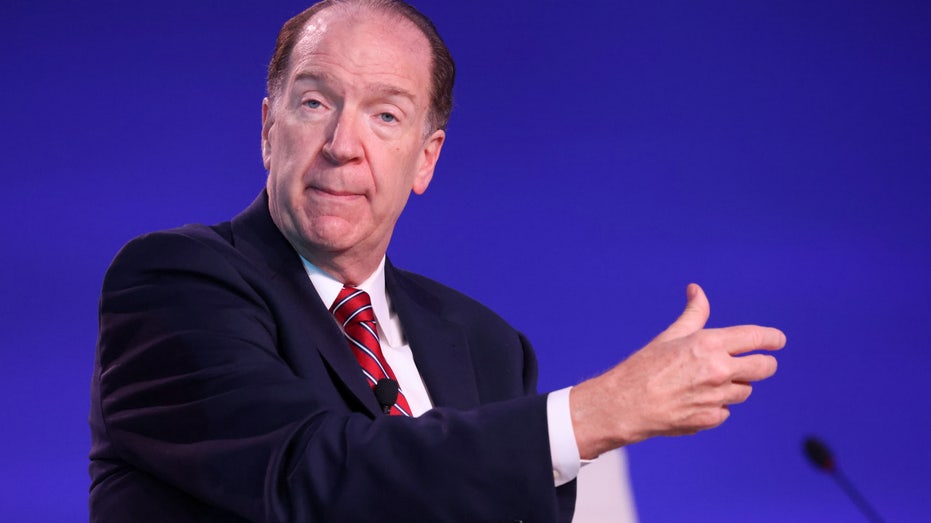World Bank warns global recession risk rising as interest rates soar higher
Global growth is 'slowing sharply,' as central banks raise rates: World Bank
Heppenstall on slowing economy: Fed will be tightening aggressively
CFA Penn Mutual Asset Management CIO Mark Heppenstall discusses the consumer price index report, recession risk in the U.S. and his outlook for the labor market as companies are set to begin wave of layoffs.
The global economy faces a growing threat of recession next year as central banks across the world raise interest rates at an aggressive clip in a bid to tame inflation, the World Bank said in a new report.
Growth in the world's three largest economies — the U.S., China and the European Union — has already slowed sharply this year, the Washington-based institution said.
It warned that even a "moderate hit" to the global economy over the next year could drag it into a recession.
"Global growth is slowing sharply, with further slowing likely as more countries fall into recession," said World Bank Group President David Malpass. "My deep concern is that these trends will persist, with long-lasting consequences that are devastating for people in emerging markets and developing economies."
AMERICANS' INFLATION EXPECTATIONS DROPPED AGAIN IN AUGUST, NEW YORK FED SAYS

World Bank President David Malpass attends the U.N. Climate Change Conference (COP26) in Glasgow, Scotland, Nov. 3, 2021. (REUTERS/Yves Herman / Reuters)
The World Bank noted that the synchronized interest rate hikes underway globally are likely to continue well into next year but might not be sufficient to bring inflation down to pre-pandemic levels.
In the U.S., Federal Reserve policymakers have lifted the benchmark interest rate four consecutive times and are poised to approve another mega-sized rate hike next week. Central banks in England and the European Union have also raised rates.
FED’S INTEREST RATE OUTLOOK DRIVES MORTGAGE RATES UP
Fed Chairman Jerome Powell has signaled that officials will continue to raise rates, even if it drives unemployment higher, rattling markets.
Investors expect central banks to raise interest rates to almost 4% next year, although rates could eventually climb as high as 6%, the report showed.

Jerome H. Powell, chair of the Board of Governors of the Federal Reserve, speaks during a confirmation hearing before the Senate Banking, Housing and Urban Affairs Committee Jan. 11, 2022, in Washington, D.C. (Graeme Jennings/Pool/Getty Images / Getty Images)
But unless supply chain disruptions dissipate and labor market pressures subside, the core global inflation rate, which excludes the more volatile measurement of energy, will likely hover around 5% in 2022, the World Bank said. That is nearly double the pre-pandemic average.
The study estimated that 2023 global gross domestic product, the broadest measure of goods and services produced in a country, will slow to 0.5% after record expansion last year. That would meet most definitions of a technical recession because average global incomes would be falling.

Construction workers pass planks of wood to workers above during the construction of new apartments in Monterey Park, Calif. May 4, 2022. (Frederic J. Brown/AFP via Getty Images / Getty Images)
"Policymakers could shift their focus from reducing consumption to boosting production," Malpass said. "Policies should seek to generate additional investment and improve productivity and capital allocation, which are critical for growth and poverty reduction."
GET FOX BUSINESS ON THE GO BY CLICKING HERE
The World Bank encouraged central bankers to clearly communicate their policy actions, suggesting that doing so could help them avoid a recession.





















